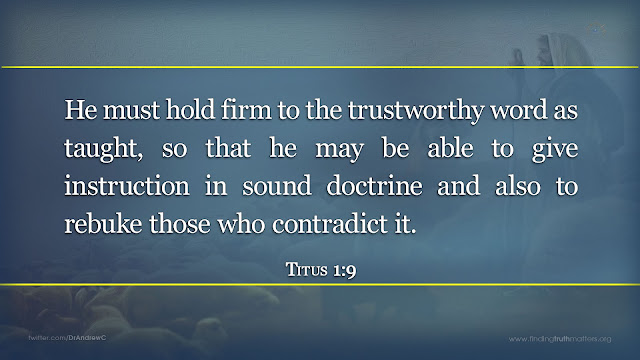In recent times I have spoken with several parents who have been dismayed that their children seemed to have given up on church and living as Christians. Coincidentally, each of these parents have said, “All we can do is pray!” I certainly think that parents should be praying for their children — but I do not think that it is all that parents can do - or should have done.
It is a lot easier to become a parent than it is to be a parent. Fathers and mothers are ordained by God to raise their children to know God and His Word. This necessarily involves being the community of a church family. The New Testament links being a family: husband and wife, with their children, connected into a local church.
In the same way husbands should love their wives as their own bodies. He who loves his wife loves himself. For no one ever hated his own flesh, but nourishes and cherishes it, just as Christ does the church, because we are members of his body. “Therefore a man shall leave his father and mother and hold fast to his wife, and the two shall become one flesh.” This mystery is profound, and I am saying that it refers to Christ and the church. However, let each one of you love his wife as himself, and let the wife see that she respects her husband.
Ephesians 5:28-33
Each father, in particular, has the responsibility to pastor his wife and children. While it may not be feasible for a husband and father to do everything on the list of pastoral duties which I mentioned in the opening paragraph, the responsibility to read God’s Word; lead in prayer; correct, teach, instruct; take his son/s through a manhood rite of passage; affirm his daughter/s as a woman and lady; dedicate his newborn to the Lord; with his wife and children is.
Last week, Kim and I became Grandparents for the second time. We now have a grandson and a granddaughter. My children now repeat how they were pastored by me and Kim. Two days after my granddaughter was born we drove down to Hobart to be with Tyrone and Steph and Dorothy. When I asked Tyrone if he was praying with Dorothy each night, he affirmed that he was — but also added, “And we’re reading the Gospel of John chapter by chapter as well!”
Here is what every Christian father and mother should do with their children to disciple them to be followers of Christ:
1. Be role models of fully-devoted followers of Christ.
2. Let your child/ren see your devotion to Christ as you read your bible and pray.
3. Pray, and read the bible, with your child each day (I recommend at the end of the day as they have gone to bed).
4. Be involved with a local church so that your children recognise that they have a biological and a spiritual family (get them involved in Kids' Church/Sunday School, then Youth Group, as they grow up).
5. Eat your evening meal at a table as a family and make giving thanks to God (“saying grace”) then treat this time as a routine for talking together, reading a devotional to them, and then training your child/ren to pray).
6. Fight for your child's spiritual well-being in prayer regularly throughout your day.
7. Make enhancing the romance of your marriage a priority.
[Officiating at an Affirmation of Womanhood ceremony where a newly turned teenage young lady is presenting with a pearl necklace, and the men of the church are charged to protect her:]
THE DISCIPLESHIP CONNECTION BETWEEN A LOCAL CHURCH AND THE FAMILY HOME
If we were to read through Colossians 3:1-21, we would read of the link between the home and the local church. Of the character traits prescribed in this important passage are not possible to attain without a healthy connection within a family, and a local church. This is why both are spiritually important for the development of young children into fruitful, faithful, full-on, followers of Christ. Something I haven’t mentioned - perhaps because it is obvious - is the important modelling role that the senior minister/leader of a church plays. Reading through First Timothy 3:1-7, where the New Testament lists the requirement for an elder/shepherd, it grounds these requirements in what happens in the church leader’s home: “He must manage his own household well, with all dignity keeping his children submissive - for if someone does not know how to manage his own household, how will he care for God’s church!” (1Tim. 3:4-5). This is why the senior pastor and his wife must exemplify what a Christian home looks and sounds like to their congregation.
Let me know what you think in the comments below.







































